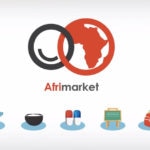Banking penetration in Africa driven by mobile devices
64 million people hold mobile money accounts in Sub-Saharan Africa. Beyond the M-Pesa app, which has been such a huge success in Kenya, here we examine some of the other startups that are thriving in Africa.

In the year 2030 two billion people will use their cell phones to save, lend and make payments, according to Bill Gates. But you don't need to peer that far into the future to recognize the potential that mobile banking offers as a driver of financial inclusion.
Figures from the World Bank demonstrate just how vital mobile devices are for the unbanked population: in Sub-Saharan Africa 12% of adults (64 million people) have mobile money accounts, 10% more than in the rest of the world (2%).
Kenya leads the way, with mobile money account ownership at 58%, while Tanzania and Uganda have rates of close to 35%. In Kenya more than half of adults who pay utility bills use a cell phone to do so. One success story that corroborates this trend is that of the M - Pesa app.
In Ivory Coast, Somalia, Tanzania, Uganda and Zimbabwe more adults have mobile money accounts than bank accounts. In Tanzania nearly a quarter of individuals who collect payments for agricultural products do so with their cell phones in hand.
More figures: 48% of adults in Sub-Saharan Africa send or receive remittances. In the wake of M-Pesa's success in Kenya, plenty of startups are emerging with the intent to provide financial services to the 75% of the African population that is excluded from traditional banking.
1. Afrimarket: a “cash-to-goods” transfer service that is breaking Western Union's monopoly
In March of 2013 the Moroccan entrepreneur Rania Belkahia partnered with Jérémy Stoss and François Sevaistre to launch this startup, which aims to compete with the giant names dominating the remittance business. Every year emigrants send 60 billion dollars to Africa. However, just 5% of Africans hold bank accounts, which means this money is either moved by "informal" means or via the two major players in money transfers: Western Union and MoneyGram, which together account for 75% of the market.
As Belkahia explained to La Tribune, “on average a fee of 12.5% of each transfer amount is charged, plus a commission on the exchange rate. We provide a cheaper alternative that also guarantees that the funds will be put to good use."
Afrimarket puts the person making the transfer in control of how the money is spent. They can specify whether it can be used to buy food, make payments on a home, education, domestic appliances, etc. An SMS is sent to the beneficiary detailing how much they have to spend on items via a catalog or at any of the 300 partner establishments, which are equipped with Afrimarket mobile payment terminals.
"Beneficiaries simply waive their cell phone close to the terminal to authenticate the transaction: we use encrypted sound technology that works with all operators and devices. Including the 10 euro Chinese cell phones that are so widely used in Africa," says Belkahia. Orange has invested in the business, which operates in Abidjan, Dakar, Lomé, Cotonou and Bamako.
2. Bouquet Pass Santé in Senegal: paying medical bills from abroad
Bouquet Pass Santé is a startup from Senegalese entrepreneur Moussa Traoré, which allows money to be made available to cover medical emergencies and healthcare bills. The process is simple: if, for example, someone falls ill in Dakar, a relative living in Spain could use the Bouquet Pass Santé website to select a doctor for them. The relative makes the payment online and the patient is sent a message with a code detailing their appointment. In Senegal around 80% of remittances are used to buy food, while just 4% is spent on health.
3. Nigeria: Simple Pay
Uber and the travel agency Jovago have created an app that supports secure and instant direct payments, competing with PayPal.
4. Bitcoin in Ghana:
The Bean app is designed to do away with commissions. It therefore uses bitcoins instead of the local currency. Nikunj Handa says in this report carried by Le Monde, “the aim is to attract a significant share of remittance flows. We are focusing on Ghana and Nigeria. By using bitcoins,transfer costs are reduced from the 12% charged by traditional operators to 3% with Beam. We are far more competitive. Of the 60 billion dollars that are sent to Africa, 7 billion goes toward transfer costs."
The Bean app is designed to do away with commissions. It therefore uses bitcoins instead of the local currency
Beam converts its customers' money into bitcoins, which can then be changed into Ghanaian cedis via the recipient's mobile device.
5. SnapScan: South Africa's Apple Pay
SnapScan provides contract-free payment services in Cape Town, Durban and Pretoria, just as Apple Pay does in the United States. The process is as follows: once the SnapScan app has been downloaded, the user takes a photo of a product's QR code and enters a 4 digit code to confirm the purchase.
The partner seller is sent the payment via their mobile device once validated. Partner sellers receive payments direct to their bank accounts. Close to 10,000 South African sellers now use SnapScan.
By 2017 350 million Africans will own cell phones. These startups have a huge market open to them.